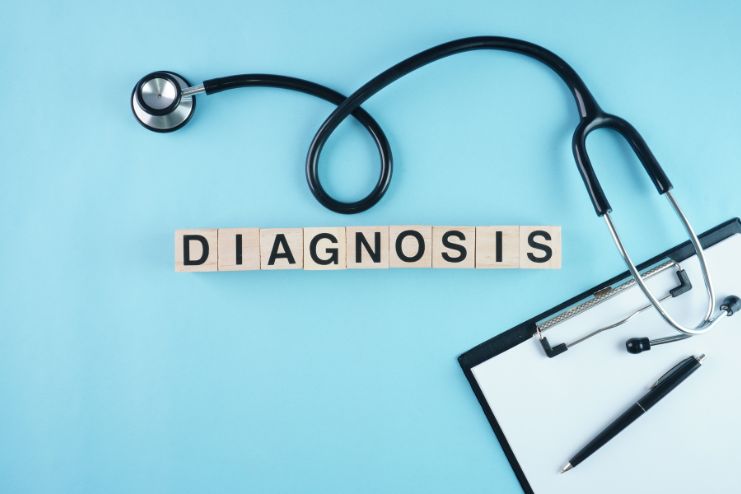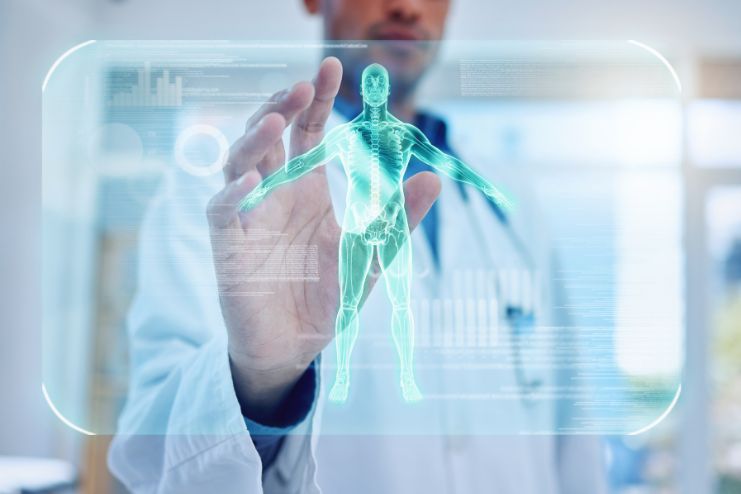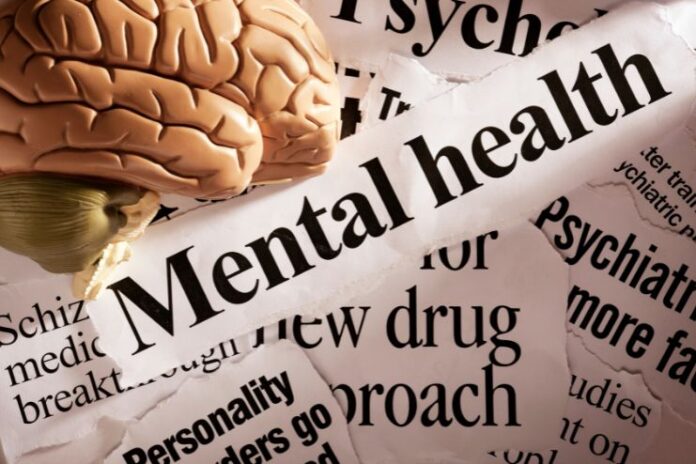AI Contribution
At HealthSpectra, we may use AI to refine grammar and structure, but every piece is shaped, checked, and approved by real people, our expert writers and editors, to ensure clarity, credibility, and care. Learn more..Affiliate Disclaimer
Some links in this article are affiliate links. We may earn a small commission if you make a purchase through these links, at no extra cost to you. We only recommend products we find useful to our readersWhat was once the stuff of a sci-fi movie script is now reality in the making.
Artificial intelligence (AI) is emerging as a force to be reckoned with in the field of mental health treatment.
From early intervention of emotional trauma to tailored therapy sessions via chatbots, AI is changing the way we perceive mental health. It offers not just wider access and quicker assistance but also greater understanding of the underlying levels of human emotion.
In this article, we’ll look at the rise of AI in mental health: how it’s creating waves in therapy and diagnosis, the technology behind the revolution, the advantages, the dangers, and what the future holds.
Read More: Mental Health Matters: Breaking the Stigma for Men
How AI Is Being Used in Mental Health Today

Here’s how AI is being used in mental health in the current environment:
Early Detection: Artificial intelligence programs scan voice patterns, text, and facial expressions to detect early warning signs of mental illness. For example, AI was used to distinguish bipolar disorder from major depressive disorder with high accuracy.
Chatbots and Virtual Therapists: Applications such as Woebot and Wysa mimic therapy conversations, providing 24/7 cognitive behavior therapy that feels uncannily human.
Teletherapy Upgrades: AI-infused applications boost virtual therapy environments with real-time mood monitoring, journaling statistics, and emotion analysis.
Predictive Analytics: AI can enable clinicians to determine risks of harm to self, suicide, or relapse based on detecting variations in digital conduct and language.
Read More: Mental Health Matters: How to Foster Open Conversations in Your Family
Benefits of AI in Mental Health Diagnosis & Treatment
- Improved Accessibility: AI-powered apps and chatbots offer around-the-clock support, removing common barriers such as location, availability, and cost. For individuals in remote areas or those with physical limitations, these tools can be life-changing. They ensure that support is just a tap away—anytime, anywhere. This is especially critical in underserved regions where traditional therapy may not be available.
- Early Detection & Prevention: AI technology can detect subtle changes in speech, writing, and behavior that even professionals may not notice. It can warn users and physicians early, before symptoms worsen, preventing mental health emergencies. Such early intervention tends to result in quicker recovery and fewer long-term issues.
- Tailored Treatment Plans: Machine learning feeds on individual data. By processing individual inputs, like journal entries, mood logs, and biometric feedback. AI can suggest therapy techniques or medication adjustments specifically for each person. This enhances results and engages patients more, making them feel heard and included in their care. The result? Greater engagement and improved long-term control.
- Less Stigma: There is still stigma around seeking treatment for mental illness in most cultures and societies. AI-powered resources offer a quiet, nonjudgmental environment where one can examine emotions and receive guidance without risking social image. This anonymity is usually the initial stepping stone towards professional intervention. By making digital mental health resources more mainstream, we can establish safer points of entry into therapy.
Read More: 9 Ways to Reduce Mental Health Stigma – Normalize The Struggles
Examples of AI-Driven Mental Health Tools

- Woebot: Woebot Health is a CBT-focused AI chatbot that assists users with day-to-day stress and anxiety.
- Headspace Care: Formerly Ginger, Headspace Care combines human guidance with AI-powered monitoring and insights.
- Tess by X2AI: A multilingual chatbot, Tess, provides emotional care in the workplace and schools.
- Ellipsis Health: Ellipsis Health can utilize voice biomarkers to determine emotional well-being, which helps in tailoring treatment plans for the patients.
- Mindstrong: Mindstrong helps track smartphone use to forecast and monitor mood disorders.
Ethical and Clinical Concerns
As artificial intelligence becomes increasingly popular in mental health treatment, it presents not only opportunities but also significant ethical and clinical concerns.
Although the technology holds great promise, it’s crucial to address the risks that accompany its widespread adoption. These issues must be acknowledged to ensure that AI-based solutions are reliable, equitable, and genuinely beneficial for everyone.
- Accuracy & Bias: AI systems can replicate biases present in the datasets used for training, leading to disparities in diagnosis and treatment.
- Data Privacy: The handling of sensitive mental health information necessitates stringent security measures and user consent.
- Lack of Human Empathy: AI systems can mimic empathy, but cannot replace the complex relationship established by a human therapist.
- Regulation Lag: Some tools enter the marketplace without comprehensive testing or oversight, raising concerns about safety and efficacy.
The Future of AI in Mental Health

As AI advances, so does its potential to transform mental health care. While we are already witnessing AI enhance access and efficiency, the future promises even more revolutionary possibilities. From hybrid care models to more advanced emotional analysis, here’s how the future could unfold:
- Blended Care Models: Instead of substituting human therapists, the future of mental health treatment is collaboration. AI can help with evaluations, mood monitoring, and pattern identification, while therapists handle deeper human connections and empathy. Together, they can deliver more holistic, scalable, and responsive care.
- Smarter NLP (Natural Language Processing): With more advanced natural language processing, AI will be able to better understand not only the words we use but also the context, tone, and emotional subtext. This might enable AI to more effectively measure emotional states, adjust responses in real time, and provide more effective support.
- Wider Integration: We can anticipate wider use of AI technologies in institutions like schools, workplaces, and government agencies. These technologies might assist in detecting early indicators of distress, help in mental well-being programs, and provide proactive care, particularly in high-pressure environments.
- Global Reach: As internet access grows globally, AI can provide the potential to extend mental health help across cultures and borders. If inclusive, these tools may reach communities that traditionally have not had access to professional care, and therefore reduce the global mental health gap.
Read More: Managing Stress for a Healthy Heart: Techniques for Better Mental Health
Conclusion
AI isn’t going to replace therapists—it’s going to make their work more effective, accessible, and customized to patient needs. With careful design, extensive testing, and robust ethical standards, AI can help millions who are currently locked out of mental health care.
To make this possible, though, we need to ensure data privacy, remove algorithmic bias, and keep empathy at the heart of any care, whether digital or human.
Expert Insights: The future of mental health treatment won’t be about replacing human beings—it will be about making them stronger.
“I have seen clients benefit from AI-assisted therapeutic conversations outside of sessions to help with social anxiety, cognitive distortions, or intrusive thoughts,” says Hausalya Kulanayagam, a registered psychotherapist who practices in Toronto.
“However, when pursuing digital and AI-powered support, it is important to ensure there are physical supports in place as well, including friends, family, a therapist, and other health care providers with whom you can physically co-regulate.”
It’s where the empathy of a therapist comes together with the accuracy of a well-trained machine. And when they work together, they may finally bridge the gap between those in need and access to care.
References
- https://bmcmededuc.biomedcentral.com/articles/10.1186/s12909-023-04698-z
- https://fpgainsights.com/artificial-intelligence/ai-in-mental-health/
- https://pmc.ncbi.nlm.nih.gov/articles/PMC8988272/
- https://pmc.ncbi.nlm.nih.gov/articles/PMC11433454/
- https://www.psypost.org/generative-ai-chatbots-like-chatgpt-can-act-as-an-emotional-sanctuary-for-mental-health/
- https://woebothealth.com/
- https://organizations.headspace.com/ginger-is-now-part-of-headspace
- https://www.ellipsishealth.com/
- http://www.mindstrong.org.au/
In this Article


















